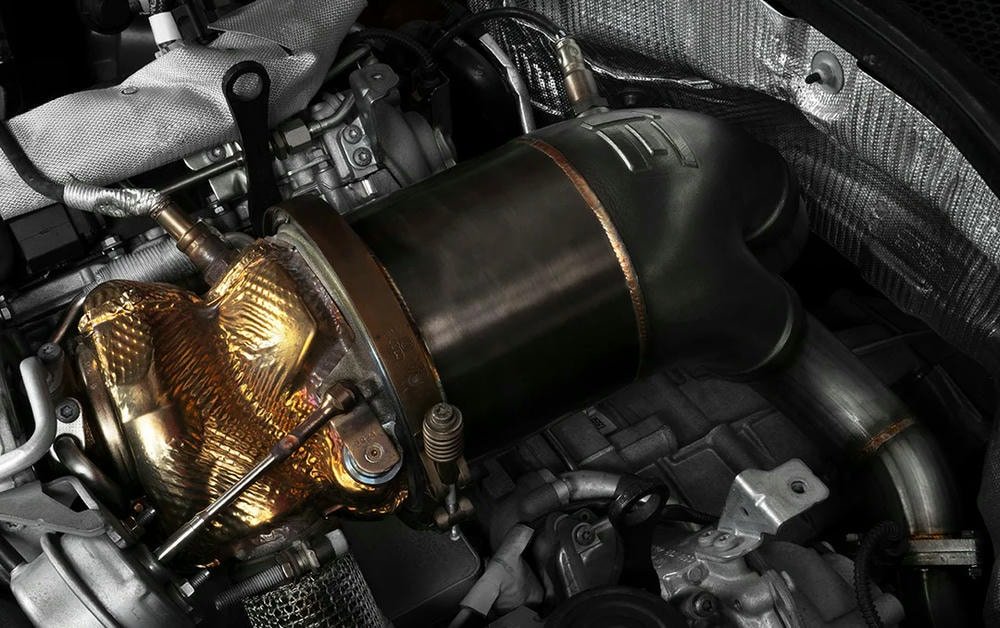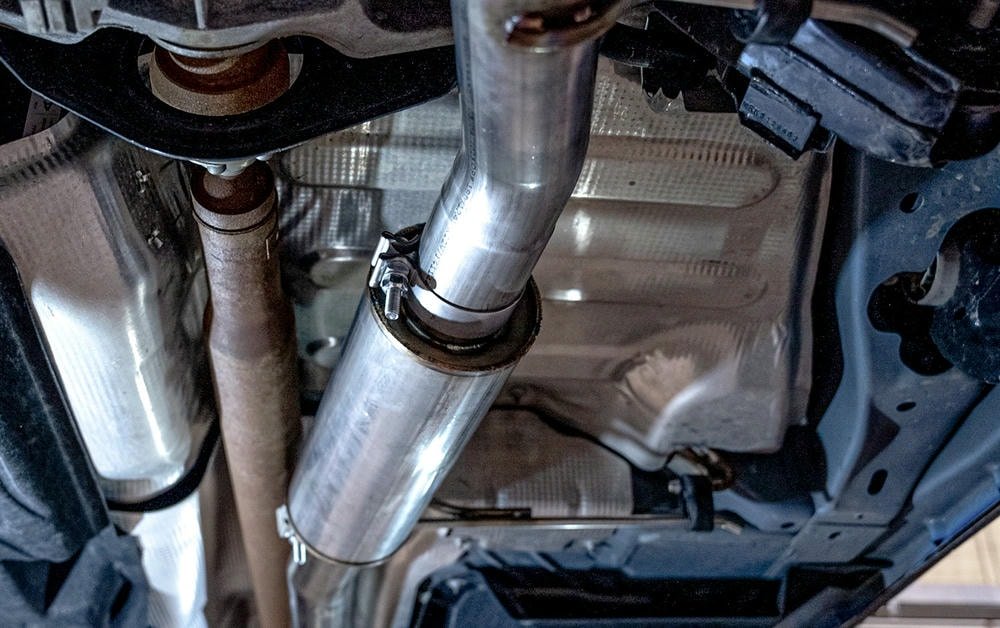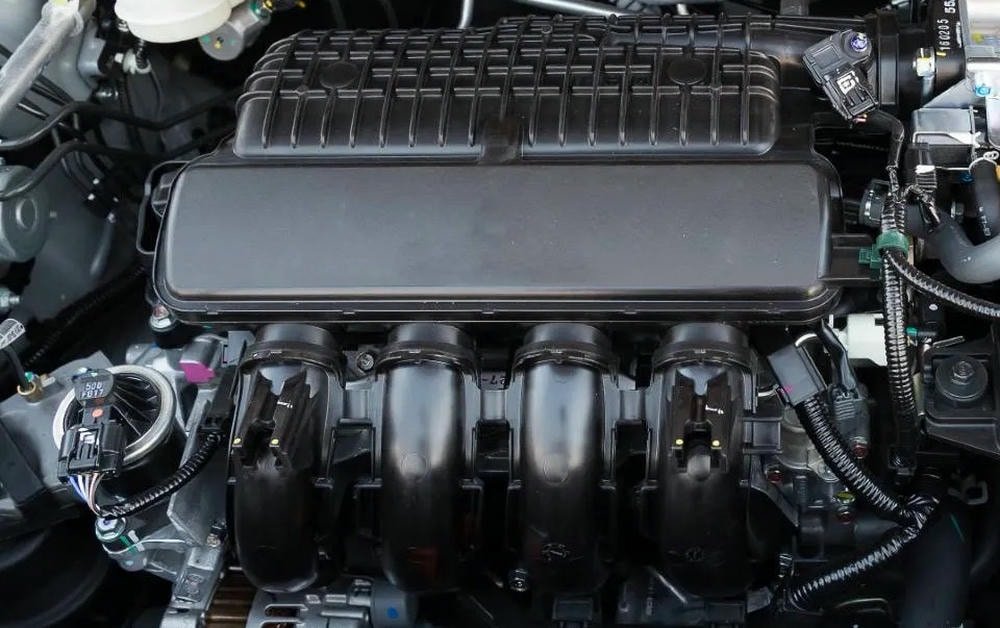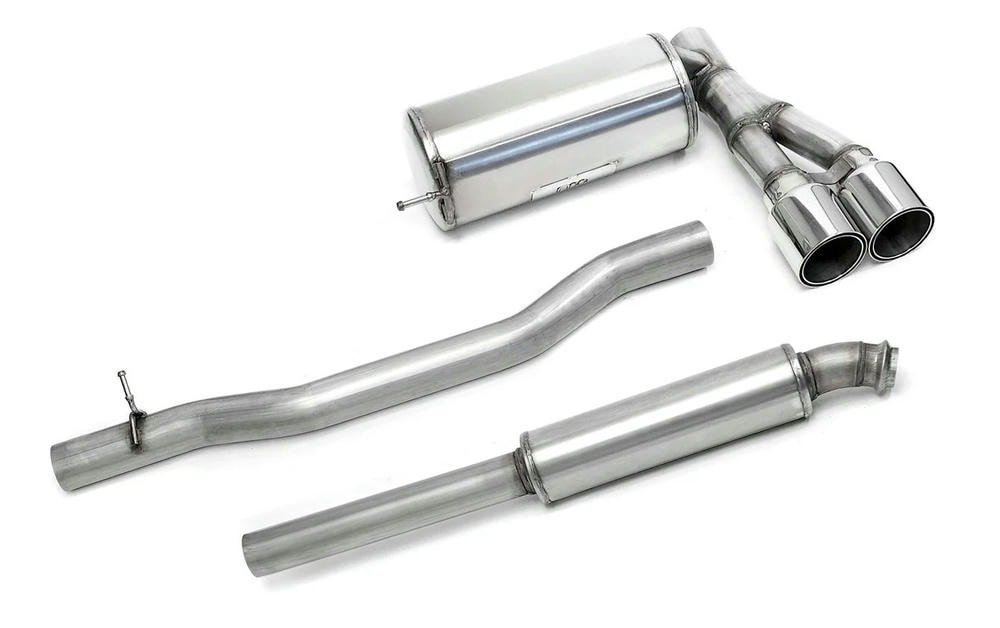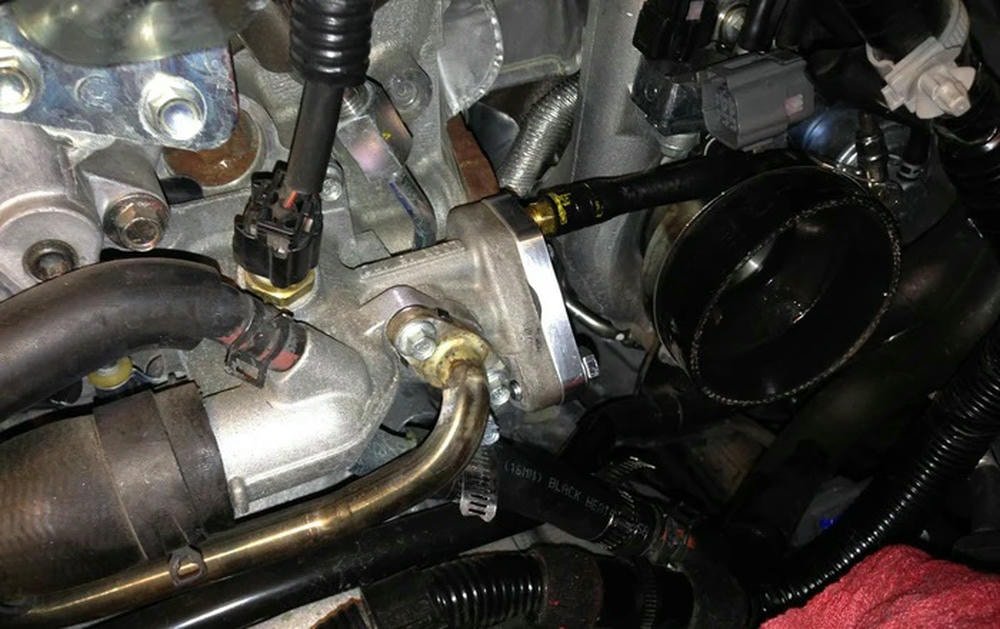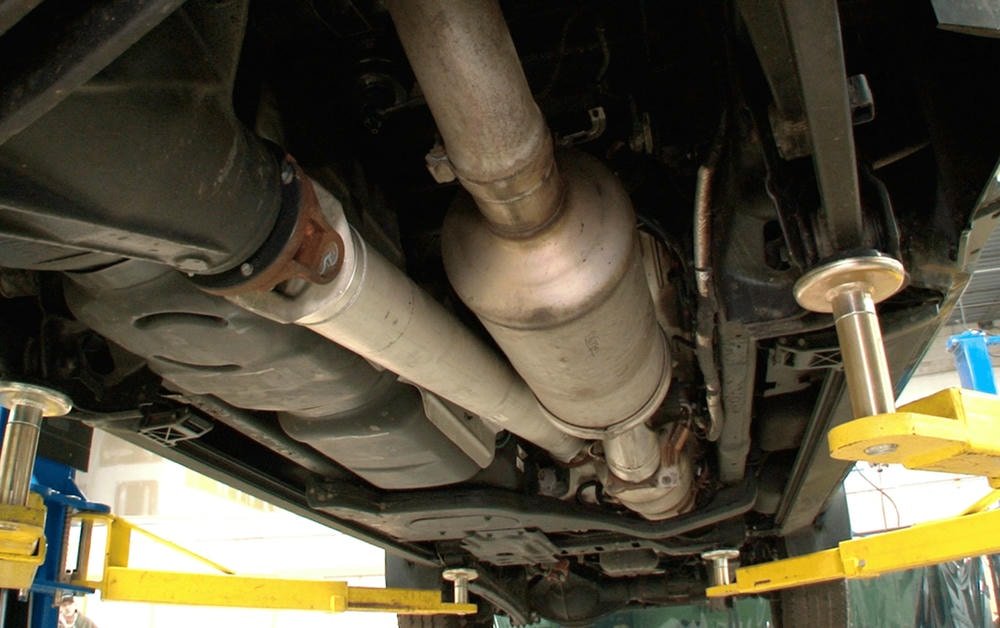Turbo downpipes play a key role in boosting truck performance. These parts help exhaust gases exit faster, reducing the strain on engines. This makes trucks run cooler and more efficiently.
With a turbo downpipe, diesel truck owners see an increase in horsepower and torque, making it easier to pull heavy loads or speed up quickly. These upgrades are especially helpful for those who race or often tow with their trucks.
The article explains how turbo downpipes work, their benefits, and where they make the most impact. Let’s explore why these parts are good for your truck.
Table of Contents
ToggleKey Performance Benefits of Turbo Downpipes
Turbo downpipes upgrade an engine’s breathing room, making a clear path for exhaust fumes to escape. This change cuts down on the hold-up in engines, letting turbochargers work faster, and pushes more power and pull out of the engine while cooling off harmful gases quicker.
Reduction in Exhaust Backpressure
Reducing exhaust backpressure is a big plus for diesel truck engines. This happens because turbo downpipes allow gases to flow out faster. Less pressure from these escaping gases means the engine doesn’t work as hard to push them out.
This is good news for performance exhaust systems.
With less backpressure, your truck’s engine breathes easier. This setup helps with quicker throttle responses and better power output. Turbocharged vehicles especially benefit from this improved exhaust flow.
It makes the turbo spool up faster, which gets you more horsepower and torque quicker than before. Diesel performance sees a noticeable improvement, making it a smart upgrade for those who want their trucks to do heavy lifting without breaking a sweat.
Faster Spool Time for Turbochargers
Faster spool time for turbochargers means a truck gets up to speed quicker. This is great for diesel truck owners who want more power without waiting. Upgrading to a turbo downpipe plays a big role in this improvement.
The reason is simple: better exhaust flow allows the turbocharger to spin faster.
A friend said, ‘After I installed the turbo downpipe, my truck’s response was immediate.’
With less exhaust gas blocking the way, the turbo spools up quicker. This leads to a noticeable difference in how fast a diesel engine responds when you step on the gas. Owners often see their trucks performing better, especially when towing or hauling heavy loads.
Use of terms like “turbo downpipes,” “exhaust backpressure,” and “boost threshold” are common among those tuning engines for better performance. They find that reducing backpressure helps lower the boost threshold, making power available at lower RPMs.
Increased Horsepower and Torque Output
Turbo downpipes significantly affect the power range and towing capacity of trucks. They augment engine performance by increasing horsepower and torque, thus enhancing the experience for diesel truck owners.
These components decrease the resistance within the exhaust system, thereby promoting better engine ventilation. Consequently, a truck equipped with improved downpipes will exhibit increased speed and superior cargo-handling capability with ease.
The installation of turbo downpipes is akin to optimizing your engine to perform at its peak level. This enhancement results in remarkable power augmentation, crucial for users who frequently subject their trucks to rigorous tasks.
Those who pay attention to engine modulation or customized exhaust configurations will find these components extremely beneficial. They augment power and also ensure seamless operation between various parts, from the turbocharger to the catalyst, thereby improving overall efficiency.
Lower Exhaust Gas Temperatures
Lower exhaust gas temperatures mean the engine runs cooler. This is good for diesel truck engines. It makes them last longer and work better. Cool air helps the turbocharger do its job well without extra heat causing problems.
Using turbo downpipes, trucks get rid of hot air faster. This stops heat from building up inside the engine. Less heat means a smoother run and less risk of damage over time. Diesel owners notice their trucks perform better, even when pulling heavy loads or driving fast for long periods.
Situations Where Turbo Downpipes Make the Biggest Impact
Turbo downpipes really show their power in cars built for speed, trucks that pull heavy loads, and vehicles with bigger turbochargers. Check out more on how they can boost your ride’s performance.
High-Performance and Racing Applications
In high-performance and racing settings, the significance of turbo downpipes cannot be understated. These components aid in accelerating vehicles by optimizing the exhaust flow. They reduce what is commonly referred to as backpressure, thereby allowing the engine to breathe more freely and generate increased power.
Racing enthusiasts appreciate how these downpipes expedite their vehicles’ readiness. This process is known as the rapid spool-up of turbochargers. Due to minimized wait periods, drivers experience an instant acceleration surge precisely when required.
Moreover, an upgrade to stainless steel pipes enhances resilience against heat and racing-induced stress.
For individuals who modify diesel trucks for racing or heightened performance, incorporating a customized exhaust system with a top-quality turbo downpipe is crucial. This modification not only boosts horsepower, but also ensures the engine operates at cooler temperatures by reducing the heat of outgoing gases.
Given these advantages, it’s apparent that racing participants and vehicle tuners elect turbo downpipes to gain a competitive edge or simply to extract more performance from their vehicle’s engine on the road.
Vehicles with Upgraded Turbochargers
Trucks with better turbochargers see huge gains from turbo downpipes. These upgrades let the engine push out exhaust gases faster. This means the turbo spins up quicker and boosts power sooner.
Truck owners often share stories of feeling a clear difference in how their diesel engines respond, especially when pulling heavy loads or climbing steep hills.
Using high-quality downpipes also helps in cutting down harmful emissions. Less backpressure on the engine leads to cleaner burning of fuel. This results in less carbon monoxide and hydrocarbons getting into the atmosphere.
For someone who’s tuned their truck for performance, this upgrade is a key step in making sure they get every bit of power without hurting air quality more than necessary.
Heavy-Duty and Towing Applications
Diesel truck owners often tow heavy loads. A turbo downpipe can make this easier. Upgrading the exhaust system improves engine performance. This means a truck can pull big trailers without struggling.
For those who use their trucks for work or big trips, this is key.
One diesel owner said his truck felt new after adding a turbo downpipe. He noticed better fuel mileage and power right away. The truck handled hills and heavy loads with ease.
Upgrading to a turbo downpipe changed my towing game completely.
For hauling heavy gear or long-distance towing, upgrading makes a big difference. Trucks run smoother and cooler with less stress on the engine. This upgrade is smart for anyone pushing their vehicle hard.
Conclusion
Turbo downpipes boost engine power. They make engines run cooler and smoother. Now, meet expert Sam Miller. He knows a lot about car engines. Sam has fixed cars for 20 years. He studied engine tech in college.
He also writes articles on how to make cars go faster.
Sam says turbo downpipes help by letting exhaust escape easier. This means the engine doesn’t have to work as hard to push out exhaust gases. It’s like breathing out easily after a long run.
He talks about being safe and honest with these parts too. Sam points out that quality downpipes follow strict rules so they don’t hurt the environment or break under pressure.
For daily life, especially if you tow heavy things or race, Sam recommends upgrading your downpipe for better performance.
But it’s not perfect for everyone, he adds.
Some might find it too loud or miss the old way their car felt.
Yet, for those who want more power from their diesel truck, Sam believes turbo downpipes are worth it.
They bring new strength to engines without big changes elsewhere.
So if pulling more weight or moving quicker is your goal,
this upgrade could be what you need.
FAQs
What are the benefits of using turbo downpipes in a turbocharged engine?
Turbo downpipes improve performance by enhancing exhaust flow, leading to power increase and horsepower gains. This upgrade is especially beneficial for turbocharged engines.
How do turbo downpipes compare to stock exhaust systems?
Compared to stock exhaust systems, custom setups with turbo downpipes allow better exhaust flow due to larger diameters and less restrictive designs. This can result in significant improvements in engine tuning.
Can installing a turbo downpipe affect my vehicle’s emissions standards?
While upgrading your exhaust system with a turbo downpipe can boost performance, it may impact the efficiency of catalytic converters which help reduce pollutants like carbon dioxide and nitrogen from your car’s emissions.
Is there any connection between O2 sensor placement and the use of Turbo Downpipes?
Yes, proper placement of the oxygen sensor (O2 sensor) is critical when installing a new downpipe on a turbo engine as it helps monitor emission levels and control fuel injection.
Does installing Turbo Downpipes require any changes to other parts of my car’s setup?
In some cases, you might need additional modifications such as headers or intercoolers for optimal performance after installing a new downpipe on your Audi or Silverado/Sierra model cars equipped with m340i engines.
Will I see immediate results after installing Turbo Downpipes on my vehicle?
Typically yes! An upgraded exhaust system featuring high-performance components like cat-back exhausts or wastegates along with your new Turbo Downpipe should show noticeable improvement right away during dyno testing or regular driving.

